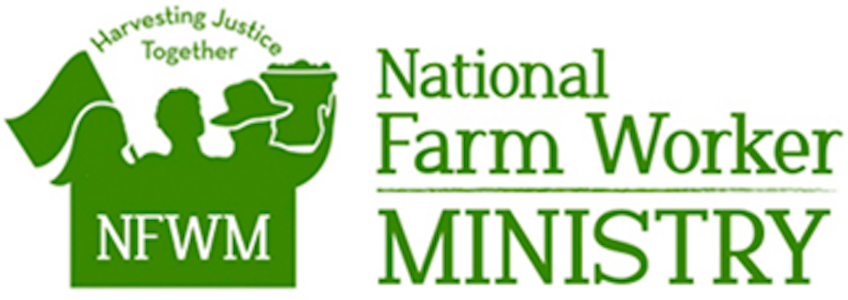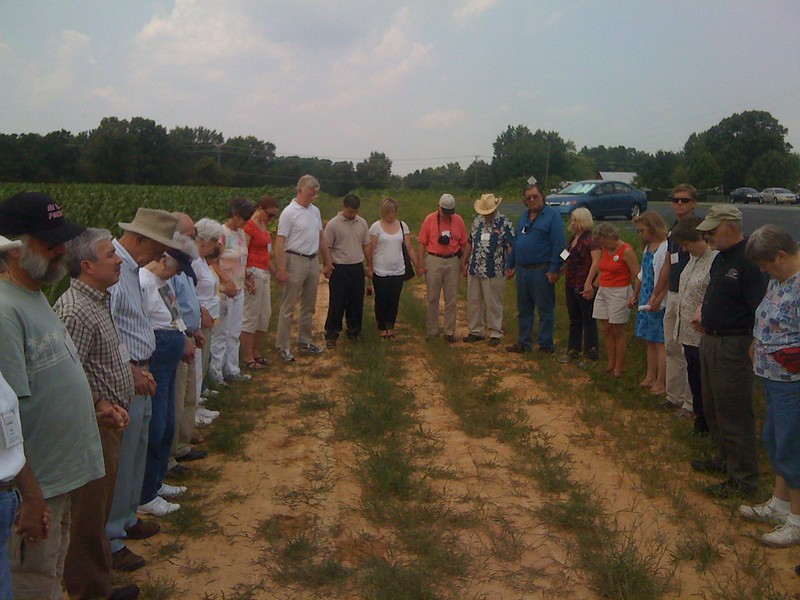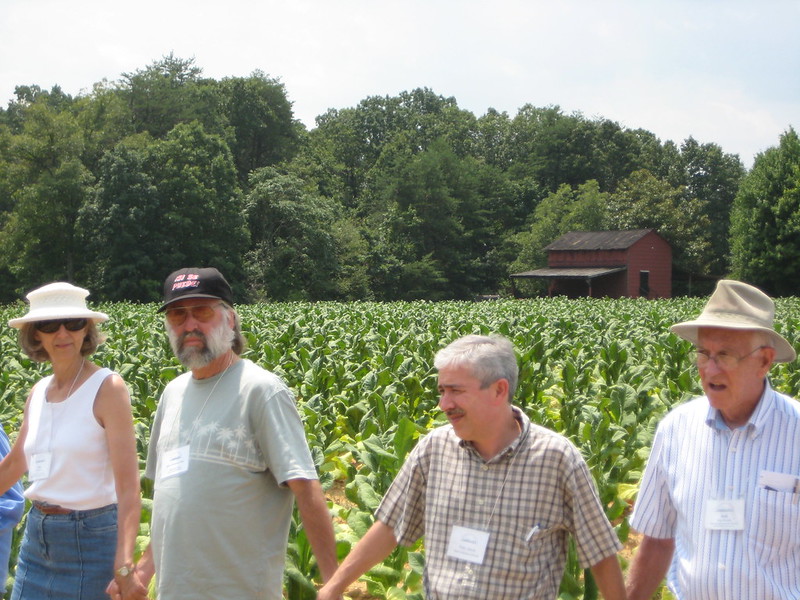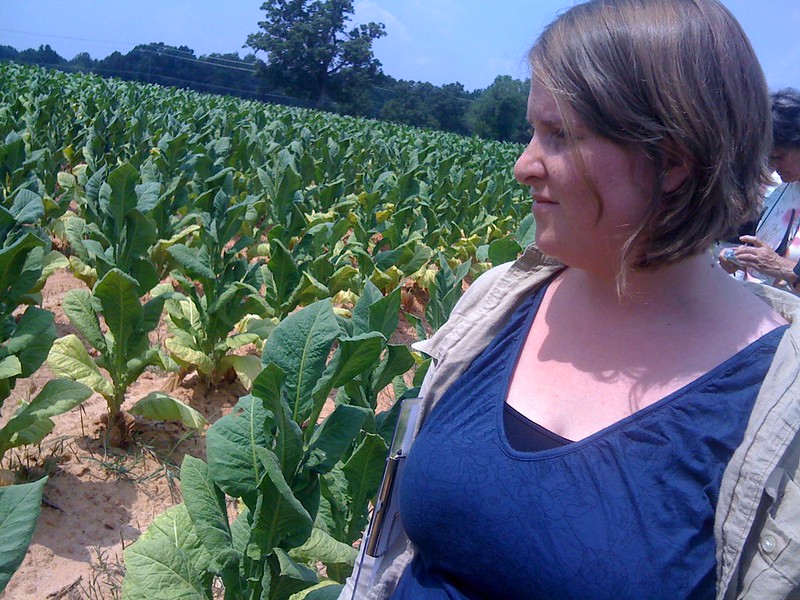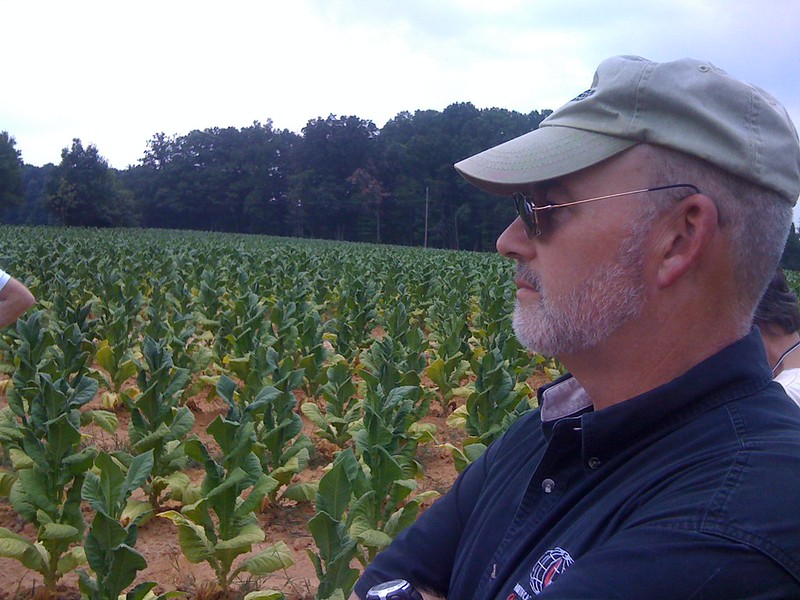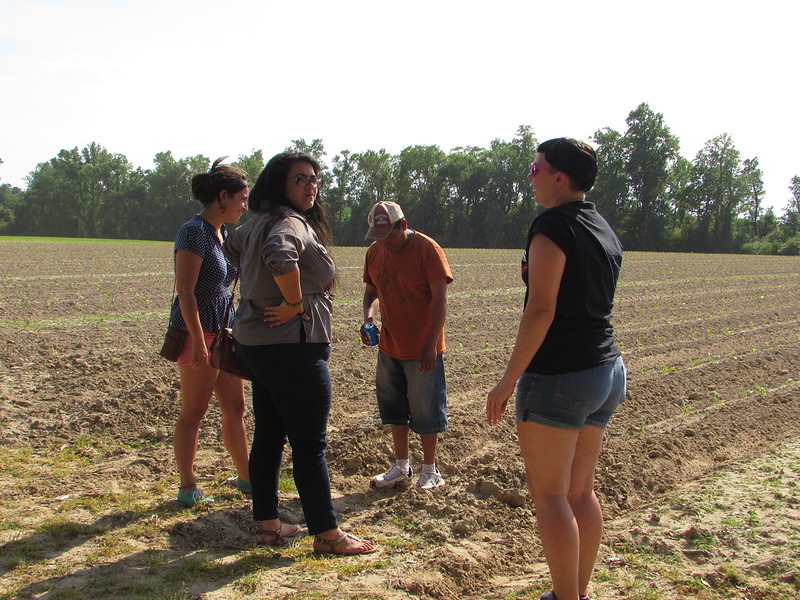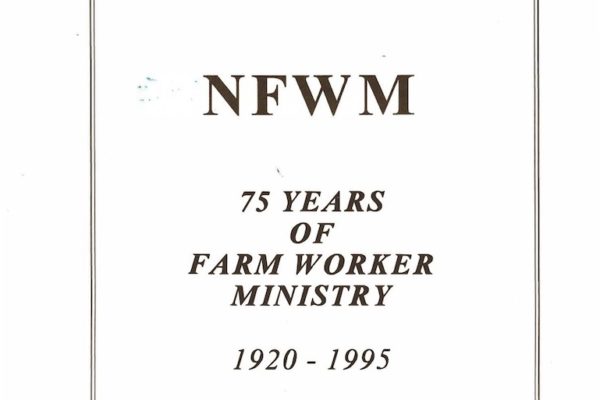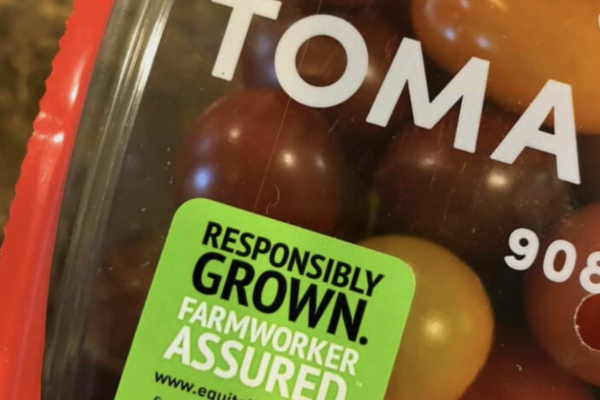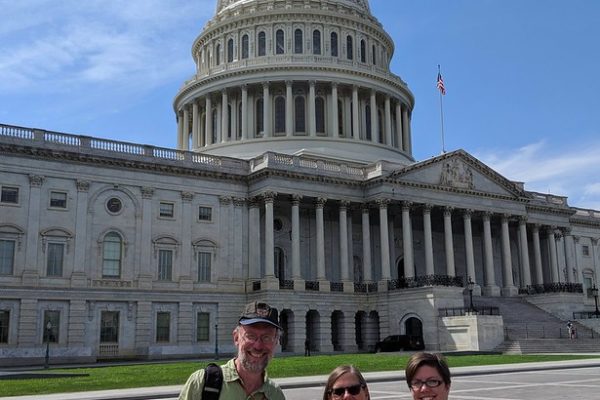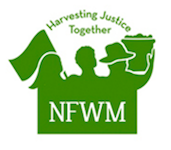The NFWM board meetings are held in various locations so that the Board can travel to an area of the country where they can engage with and support the workers. Whether it be visits to the farm labor camps, attendance at rallies or marches, or meetings with growers, at the heart of all of the campaigns, successes, and memories in this exhibit are the stories of the workers.
“We go to be witnesses, to hear their stories, to share in their stories and pray with them if they choose. We sit and talk with them. They are anxious to share their stories and what they’re going through,” said Felix Garza, former president and current secretary of NFWM. “When we come back home, we share their stories with people in our churches and in our communities.”
“The memories and the strength they’ve given me is incredible,” said Board Member Olgha Sierra Sandman who has served on the board since 1971.
Here are some farm workers stories as told by three members of the Board:
Felix Garza, former President and current Secretary
Sisters of Charity of Nazareth, KY representative
“We visit a lot of migrant camps. I remember one in particular in North Carolina. Migrant camps are never in a place where they can be seen by the public. They are hidden behind lines of trees or hills. They are tucked away. In this migrant camp there were concrete shells with one window housing 6 cots for 6 men, piled into one small room with no air conditioning, just one window, and a screen door for ventilation in the summer heat of North Carolina. We met a gentleman who had a serious hand injury and couldn’t work because of the injury. He was living in dilapidated housing – trailers that were falling apart. That’s the life of a farm worker at this time.
One gentleman, Herman Rodriguez from Mexico, had not been home for 9 years. During that time, he was sending money home to help his kids go to school. He shared [with me] that he had just recently been on the phone with his 17 year old daughter who he hadn’t seen for 9 years and she was saying she didn’t want to finish school. He was so surprised and hurt by that. He was sharing how he sacrificed so much to give her a better life and he really wanted her to think about what would happen if she quit school and the impact on her future. He was sending money so she could continue in school. ‘That’s why I’m here, working hard and sacrificing,’ he said. I could hear the pain in his voice, that his daughter did not share the same vision for her better future and not being able to be with his family for that long amount of time. He was missing the important moments of his children’s lives because of the economic situation he was facing. It stayed with me, his pain of having heard from his child that she had different goals despite his sacrifice.”
Joy Warren, Member at Large
Cumberland Presbytarian Church representative
“I appreciate that the Ministry invites farm workers to our events. Farm workers speak about their experience, humanizing it. This is a man, a father, his wife and kids are back home. He wants to be with them. To see tears in his eyes about missing his family and hard conditions he has to labor under and the way people look at him as less than human…It makes the work of the church come alive to me. I’m a Christian and I read the parables of jesus. It’s brought so much more meaning to the stories of my faith.
One meeting, the Coalition of Immokalee Workers gave us a tour of the town. You can see that the whole place is made to take advantage of farm workers and the economics of the town. You walk around and they tell you about a place where a worker is sold. To know people are still being sold for agricultural work in the country…most people don’t know that. As a clergy person and member of the Board, we always have experiences where your eyes are opened to the current situation and we ask ‘what do you want us to do, what do you need.’ We ask the people who know best – the farm workers….It feels heavy and important to me to witness what we see. We’ve seen several places where housing is being set up for H2A workers which is different from labor camps or places where undocumented workers live. It’s barrack style with a fence that’s locked from the outside. It’s clear the people are seen as property. If there’s no work, they are locked in. These places are just behind the public eye in a lot of communities. All of the employees are right there and locked in so they can’t leave. And a lot of workers don’t even know where they are or where they are going. It’s really important, whether it’s a union or a coalition, it’s really important to find them and have connection with them, to advocate for human rights and basic needs. The more we can take back to our churches and our communities, we can say ‘have your eyes been open to this?’”
Hector Rodriguez, President
Episcopal Church representative
“In El Paso, I met a group of Mexican farm workers who came across the bridge [at the US-Mexican border] every day at 4am to go into New Mexico. Most of the Mexican farm workers would work in the chili fields. A group was working to organize an effort to convince the City of El Paso to give those farm workers a center to meet and shower and eat and congregate. They didn’t even have a place to stay; they’d sleep outside on the street on cardboard. The lettuce workers also came across [the US-Mexican border] at 4AM and they would get loaded onto a truck to go to the lettuce fields. They all had heartfelt stories of trying to organize and put food on the table and get recognition as human beings with dignity. Farm workers are the most abused people in the country. That hasn’t changed. I live in the middle of where the farm workers come from and we’re still in the stone age in terms of human rights.”
